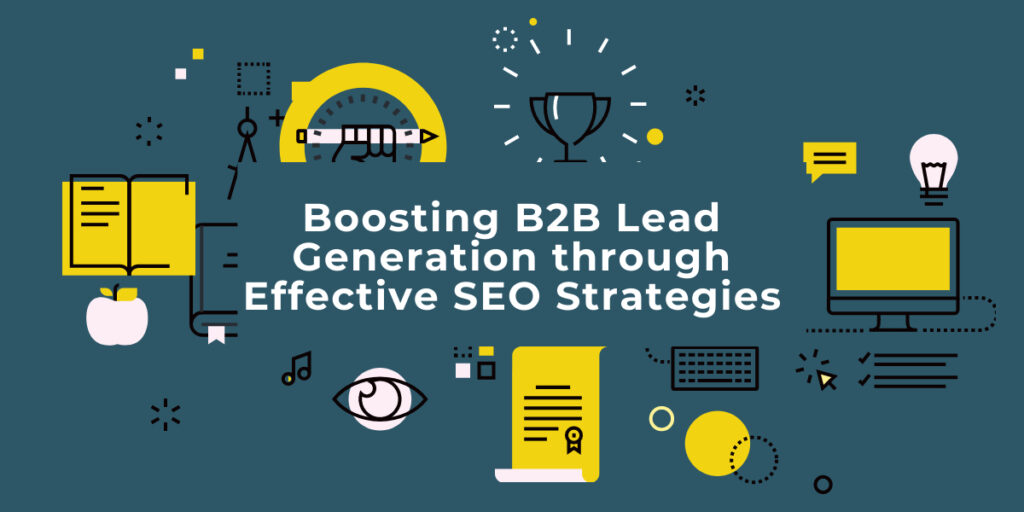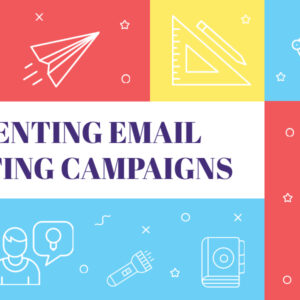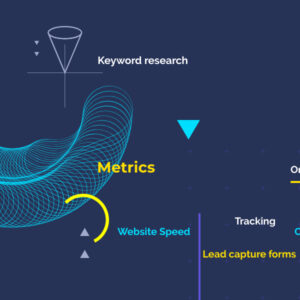
In today’s digital age, where competition in the B2B space is fierce, it is crucial for businesses to leverage every available tool to generate leads. One such tool that has proven its effectiveness time and time again is search engine optimization (SEO). SEO for B2B lead generation can significantly improve a company’s visibility and attract high-quality leads. By optimizing your website and content for search engines, you can ensure that your target audience finds you when they are actively searching for solutions that you offer.
Understanding the Basics of SEO Lead Generation
Before diving into the strategies and techniques, it is essential to have a solid understanding of what SEO lead generation entails. SEO is the practice of optimizing your website and content to rank higher in search engine results pages (SERPs). When your website ranks higher, it becomes more visible to potential customers who are searching for relevant keywords or phrases. By focusing on SEO for lead generation, you can attract targeted traffic to your website, increasing the chances of converting those visitors into leads and eventually customers.
Optimizing Your Website for Lead Generation
To unlock the power of SEO for B2B lead generation, you need to start by optimizing your website. This involves several key factors, such as website structure, page load speed, mobile-friendliness, and user experience. A well-optimized website not only attracts more organic traffic but also provides a seamless experience for visitors, encouraging them to stay longer and explore further.
One crucial aspect of website optimization is ensuring that your website is easy to navigate. A clear and intuitive structure allows visitors to find the information they need quickly, reducing bounce rates and increasing the likelihood of lead generation. Additionally, optimizing your website for mobile devices is vital, as a significant portion of B2B buyers now rely on smartphones and tablets for their research and decision-making process.
Keyword Research for Lead Generation
Keyword research is the foundation of any successful SEO strategy. By understanding the keywords and phrases that your target audience is using to search for products or services like yours, you can optimize your website and content accordingly. When conducting keyword research for lead generation, it’s essential to focus on long-tail keywords that are specific to your industry and target market. These keywords may have lower search volumes but are highly relevant and often indicate high purchase intent.
There are several tools available that can assist you in conducting keyword research for lead generation. Google Keyword Planner, SEMrush, and Moz Keyword Explorer are just a few examples. These tools provide valuable insights into search volume, competition level, and related keywords, allowing you to make data-driven decisions when optimizing your website and creating content.
On-Page SEO Techniques for Lead Generation
On-page SEO involves optimizing individual web pages to improve their visibility in search engine results. When it comes to lead generation, there are specific on-page SEO techniques that can make a significant impact.
First and foremost, optimizing your page titles and meta descriptions with relevant keywords is essential. These elements are what users see in search results, so they need to be compelling and accurately reflect the content of the page. Additionally, using header tags (H1, H2, etc.) can help search engines understand the structure of your content and improve readability for visitors.
Another critical on-page SEO technique for lead generation is optimizing your content with relevant keywords. This includes incorporating keywords naturally throughout your content, including in headings, paragraphs, and image alt tags. However, it’s important to note that keyword stuffing should be avoided, as it can lead to penalties from search engines and negatively impact user experience.
Off-Page SEO Strategies for Lead Generation
While on-page SEO focuses on optimizing your website’s content and structure, off-page SEO involves activities that take place outside of your website. Off-page SEO strategies for lead generation primarily revolve around building high-quality backlinks to your website. Backlinks are links from other websites that point to your website, indicating to search engines that your content is valuable and trustworthy.
One effective off-page SEO strategy for lead generation is guest blogging. By writing informative and engaging articles for relevant industry publications or blogs, you can not only position yourself as an expert but also include links back to your website. These backlinks not only drive referral traffic but also improve your website’s authority and search engine rankings.
Another off-page SEO technique for lead generation is leveraging social media platforms. By actively engaging with your target audience on social media and sharing valuable content, you can increase brand awareness, drive traffic to your website, and generate leads. Additionally, social media signals, such as likes, shares, and comments, can indirectly influence your website’s search engine rankings.
Content Marketing and Lead Generation
Content marketing plays a crucial role in both SEO and lead generation. By creating high-quality, informative, and valuable content, you can attract and engage your target audience. When your content resonates with your audience, they are more likely to share it, link to it, and ultimately convert into leads.
When it comes to content marketing for lead generation, it’s important to focus on creating content that addresses your audience’s pain points and provides solutions. This can include blog posts, whitepapers, case studies, videos, and more. By consistently producing valuable content, you position your brand as a trusted source of information and establish credibility within your industry.
Additionally, incorporating lead magnets into your content marketing strategy can significantly boost lead generation efforts. Lead magnets are valuable resources or incentives that you offer in exchange for a visitor’s contact information. This can include ebooks, checklists, templates, or access to exclusive content. By providing something of value, you not only capture leads but also build trust and nurture relationships with potential customers.
Local SEO for B2B Lead Generation
While B2B businesses often target a national or international audience, local SEO should not be overlooked. Local SEO involves optimizing your website and content to rank higher in local search results. This is particularly important for businesses that have a physical location or serve specific geographic areas.
One essential aspect of local SEO for B2B lead generation is optimizing your Google My Business (GMB) profile. This includes providing accurate and up-to-date information about your business, such as address, phone number, and business hours. Additionally, encouraging customers to leave reviews on your GMB profile can significantly impact your local search rankings and attract more leads.
Another local SEO strategy for B2B lead generation is optimizing your website and content with location-specific keywords. This includes incorporating the name of your city, region, or country in your page titles, headings, and content. By doing so, you increase the chances of appearing in local search results when potential customers are looking for products or services in their area.
Tracking and Measuring SEO Lead Generation Efforts
To ensure the success of your SEO lead generation efforts, it’s crucial to track and measure the results. This allows you to identify what strategies are working and make data-driven decisions for continuous improvement. There are several key metrics that you should monitor to evaluate the effectiveness of your SEO efforts.
One important metric is organic traffic, which refers to the number of visitors that come to your website through organic search results. By tracking organic traffic over time, you can identify trends and measure the impact of your SEO strategies on website traffic.
Another critical metric is conversion rate, which measures the percentage of visitors who take a desired action, such as filling out a contact form or downloading a lead magnet. By monitoring your conversion rate, you can assess the effectiveness of your website and content in generating leads.
SEO Tools for B2B Lead Generation
To streamline your SEO lead generation efforts, there are several tools available that can provide valuable insights and automate certain tasks. These tools can help you identify keywords, track rankings, analyze competitors, and more. Here are a few popular SEO tools that can be utilized for B2B lead generation:
- Google Analytics: A free tool that provides in-depth website analytics, including traffic sources, user behavior, and conversion tracking.
- Moz Pro: An all-in-one SEO toolset that offers keyword research, site audits, link analysis, and rank tracking.
- SEMrush: A comprehensive SEO and digital marketing tool that provides keyword research, competitive analysis, and site auditing.
- Ahrefs: A powerful SEO toolset that offers keyword research, backlink analysis, and content analysis.
By leveraging these tools, you can gain valuable insights into your website’s performance, identify opportunities for improvement, and make data-driven decisions to optimize your SEO lead generation efforts.
Common SEO Mistakes to Avoid in Lead Generation
While SEO can be a powerful tool for B2B lead generation, there are common mistakes that businesses often make that can hinder their success. Understanding these mistakes and avoiding them can help ensure that your SEO efforts yield positive results.
One common SEO mistake is keyword stuffing, which refers to the excessive use of keywords in an attempt to manipulate search engine rankings. Keyword stuffing not only makes your content difficult to read but can also lead to penalties from search engines, negatively impacting your website’s visibility and credibility. Instead, focus on creating high-quality, informative content that naturally incorporates relevant keywords.
Another SEO mistake to avoid is neglecting the importance of user experience. Search engines prioritize websites that provide a positive experience for users, so it’s important to ensure that your website is fast, easy to navigate, and mobile-friendly. A poor user experience can lead to high bounce rates and low conversion rates, ultimately impacting your lead generation efforts.
Conclusion
In today’s competitive B2B landscape, leveraging the power of SEO for lead generation is crucial. By optimizing your website, conducting keyword research, implementing on-page and off-page SEO techniques, and utilizing content marketing strategies, you can attract high-quality leads and convert them into customers.
Remember to continuously track and measure your SEO efforts, utilizing tools such as Google Analytics, Moz Pro, SEMrush, and Ahrefs. By avoiding common SEO mistakes and focusing on providing a seamless user experience, you can unleash the full potential of SEO for B2B lead generation.
Start implementing these strategies today, and watch as your organic traffic and lead generation efforts soar. Don’t miss out on the opportunity to tap into the power of SEO for B2B lead generation – it’s time to take your business to new heights.
Ready to supercharge your B2B lead generation with SEO? Contact us today for a free consultation and let us help you unlock the full potential of your business.
B2B Lead Generation SEO Nyamga






